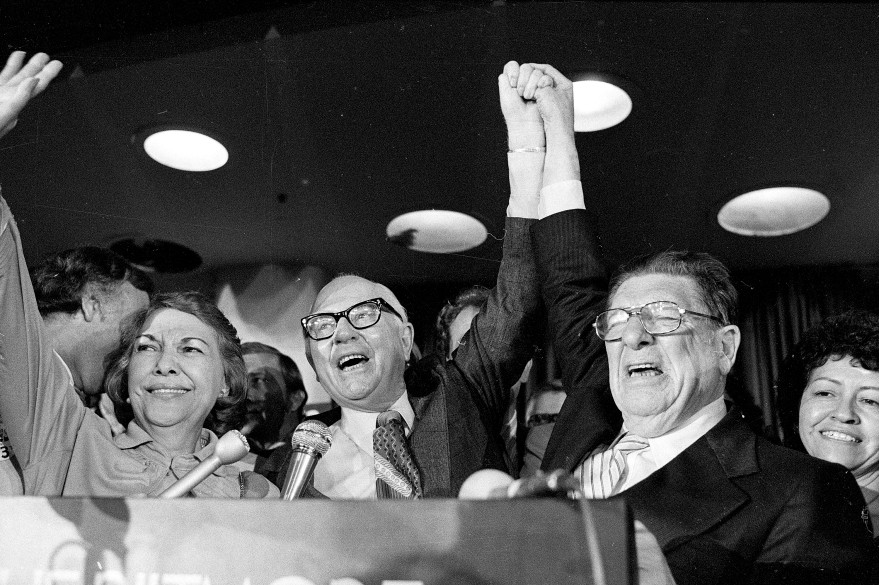
One of the most closely watched – and hotly contested – pieces of legislation now pending in the Capitol is a direct attack on Proposition 13.
Assembly Constitutional Amendment 13, until two weeks ago, was devoid of any substantive language. But it was subject to a “gut-and-amend” maneuver adding language that should alarm every California taxpayer.
To understand the severity of the threat posed by ACA 13 requires an understanding of how the courts weakened Prop. 13 over the last 45 years, especially by the infamous “Upland” decision in 2017, which opened the door to raising local taxes without the two-thirds vote that Prop. 13 requires. The court’s language in Upland led lower courts to allow local special taxes to pass with 50% plus one vote if proposed by a citizens’ initiative instead of a government body.
That decision was the last straw for all Prop. 13 defenders including homeowners and businesses, who countered with the Taxpayer Protection and Government Accountability Act (TPA), a proposed constitutional amendment to reinstate the two-thirds voter approval protection as the constitution plainly requires.
Not only has TPA qualified for the November 2024 ballot, but polling reveals it has strong support among voters. For that reason, the tax-and-spend interests – local governments and labor organizations – have launched an effort to derail this latest taxpayer protection with ACA 13, a proposed constitutional amendment that aims to tilt the playing field against taxpayers. This is an attack on the democratic principles that have allowed Californians to exercise the power of initiative for more than 100 years.
Under ACA 13, citizen-initiated constitutional amendments to protect taxpayers would require a higher vote threshold to pass than any other constitutional amendments, including any proposed by the Legislature. This is unprecedented and, in fact, if this provision had been in effect in 1978, it would have prevented Prop. 13 from ever becoming law.
Just as with the campaign 45 years ago to try to defeat Prop. 13, the air is thick with predictions of the end of civilization itself if taxpayer protections are enacted. The League of California Cities, a huge backer of ACA 13, is so apoplectic about the Taxpayer Protection Act’s restoration of the two-thirds vote for local special taxes that it is now pushing outright lies about the measure in an effort to get city officials to go on record in opposition.
One of the falsehoods being advanced concerns the impact of a provision of TPA that would require local special taxes previously approved by a majority, but not two-thirds, to go back to the voters for ratification at the constitutionally mandated threshold. The League claims this will invalidate billions of dollars for local services, however there are only six such local taxes statewide, and if two-thirds of voters approve them, they would remain in effect.
The League’s argument about the two-thirds vote requirement is an implicit endorsement of the rulings by several courts that, if a special tax is placed on the ballot via a local citizens’ initiative, it is not subject to the two-thirds vote threshold. But this was not always the League’s position.
When the Upland case went to the California Supreme Court, the League actually supported the position advanced by Howard Jarvis Taxpayers Association that there is no difference between tax hikes placed on the ballot by a legislative body versus those qualified pursuant to a citizens’ initiative.
Related Articles
Thomas Elias: Most Californians support density, but maybe anti-density measure will gain steam
Susan Shelley: Public health officials must be accountable for their freedom-robbing ‘recommendations’
Outsider candidates like Vivek Ramaswamy and RFK Jr. show the age of old-school politics is over
Santa Ana law will destroy city’s rental market
Convicted criminal Dave Min should drop out of Orange County congressional race
Here is an excerpt from the amicus curiae brief of the California League of Cities: “The core issue in this case is whether a local tax measure proposed by a citizen of a municipal corporation (or other local government agency) through an initiative is subject to the same constitutional requirements as one proposed by the municipal corporation’s governing body. The trial court held yes, but in an unprecedented opinion the Court of Appeal held that article XIII C’s requirements do not apply to taxes imposed through the initiative process. As a result, the League finds itself ironically aligned in this case with the Howard Jarvis Taxpayers Association, proponents of Propositions 218 and 26, in arguing that a proper interpretation of the Constitution does not countenance different treatment for local tax measures, regardless of their origin, and certainly does not create an exemption for initiatives that swallows all the rules created by Proposition 218.”
There is little to explain the League’s 180-degree flip-flop as to the two-thirds vote requirement other than a realization that local governments could now have easier access to the wallets of taxpayers. Moreover, this also raises the question about how the League, which exists only by virtue of the dues from member cities, can launch such an aggressive attack on taxpayers using taxpayer dollars.
In Texas, the Senate just passed a bill that would prohibit local governments from using taxpayer dollars to lobby the legislature. Perhaps that’s the reform that California needs.
Jon Coupal is president of the Howard Jarvis Taxpayers Association.
